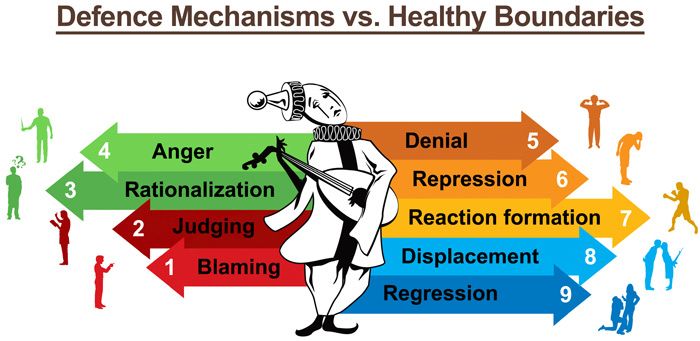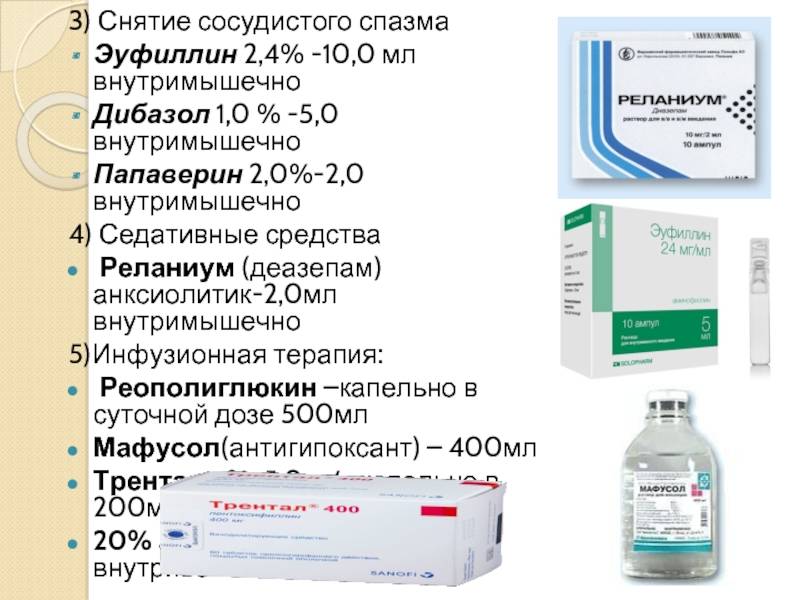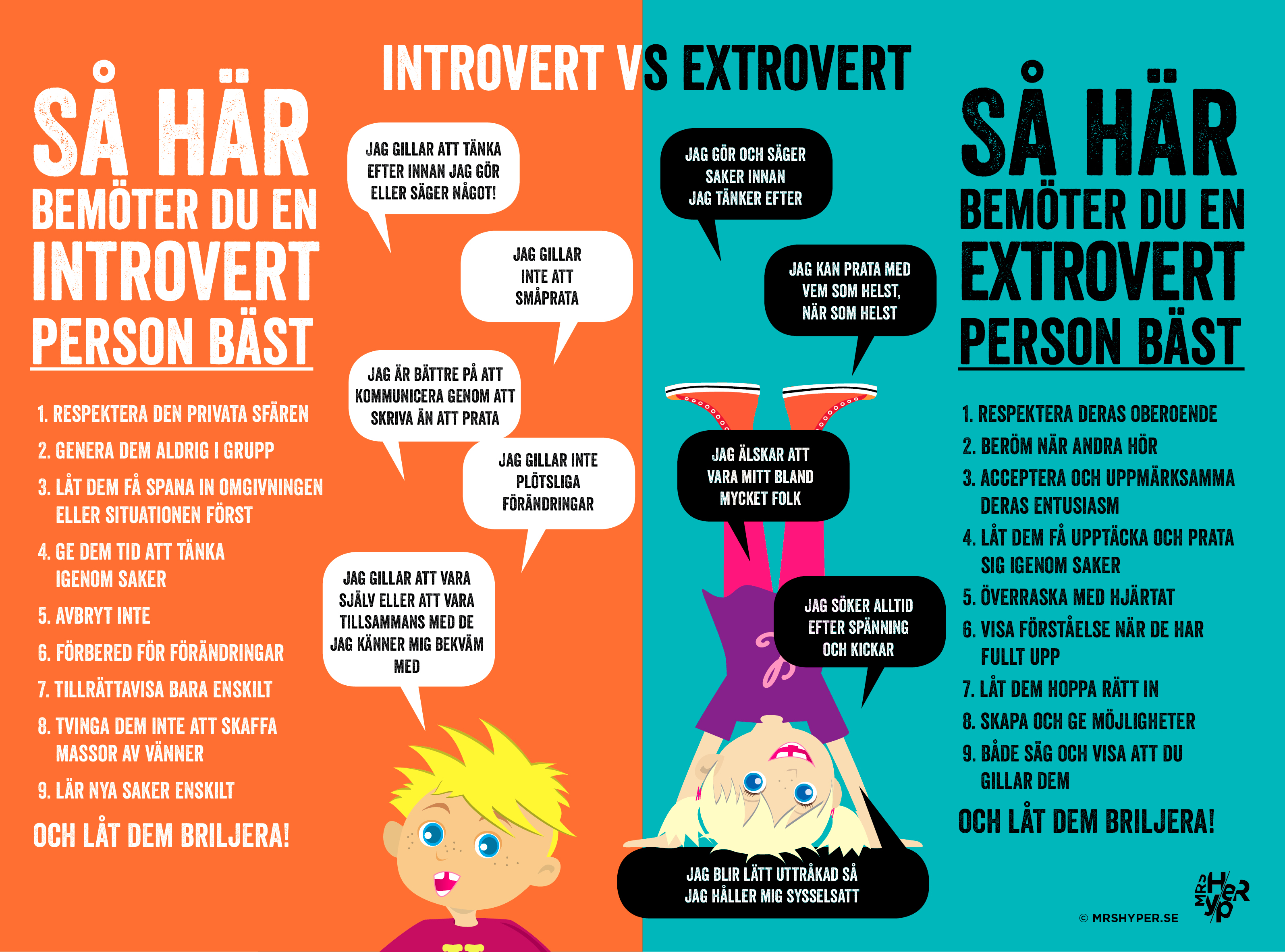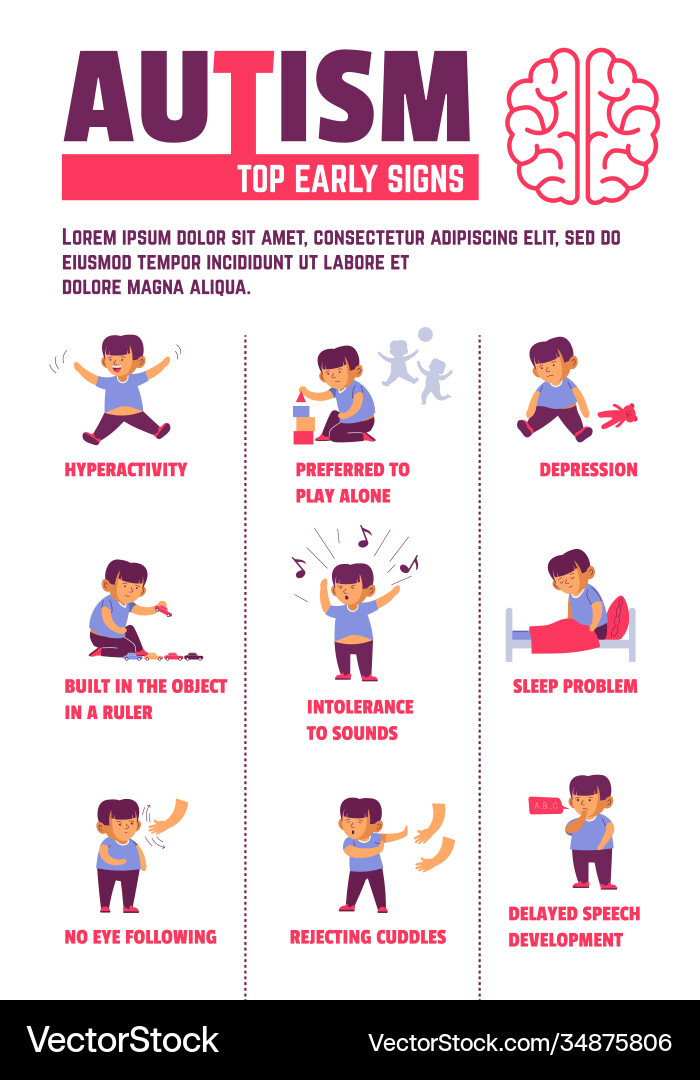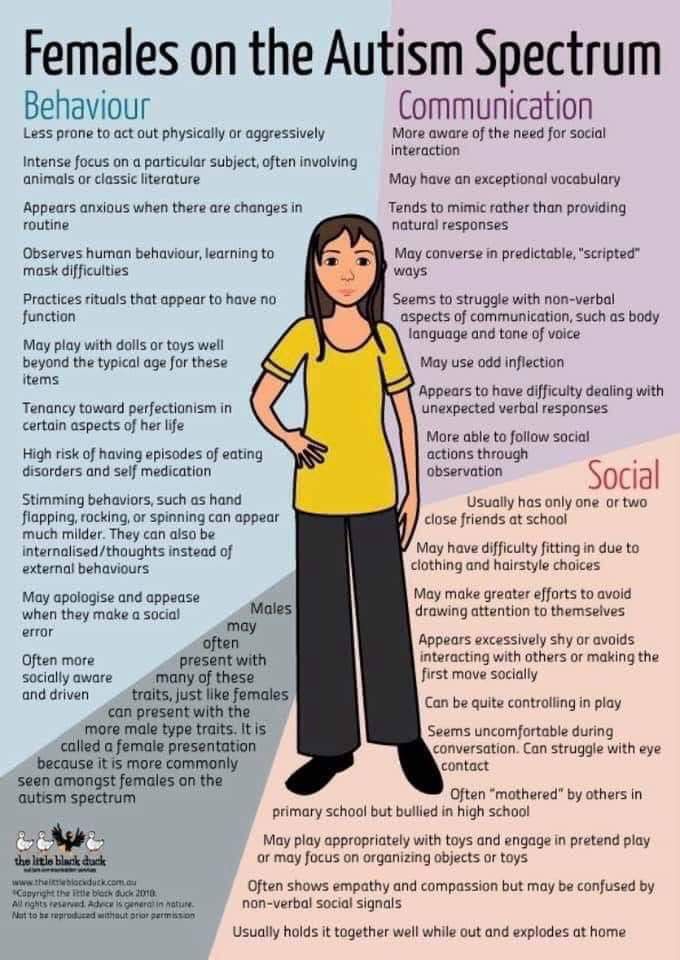Therapeutic life coach
Therapeutic Coaching
Accept All Cookies
Deny
What is Therapeutic Coaching?
How To Become a Practitioner?
Team
Contact Us
Contact Us
Groundbreaking 24-month training
which opens up a meaningful new career, whilst transforming students' lives
along the way
Integrating key principles of NLP, hypnotherapy, developmental psychology, life coaching, EFT and mindfulness training, to help people live a healthier, happier and more relaxed life.
How to Become a Practitioner?
Heal the past
by using developmental psychology
Create the future
with coaching-based methodologies
Live in the now
by practising mindfulness training
Emotional Freedom Technique
EFT is a particularly powerful way to work with past memories which have been undigested and so hold us back from living our real potential.
Neuro-linguistic Programming
NLP is most famous for its ability to wipe out life long phobias in as little as a few minutes, but it has groundbreaking applications in a whole range of areas.
Hypnotherapy
Hypnosis taught on our programmes is permissive and empathic, and so although still very powerful, it is driven by ethics and compassion.
Neuro-
Linguistic Programming
Hypnotherapy
Emotional Freedom Technique
Story of
Joanna
"
For me it was life-changing. I've learned how to look after myself better.
"
Story of
Lee
"
For me it has definitely been a life-changing, pivotal moment of stepping into a new life and I think advise I'd give to anyone considering doing it: just jump in and go with it.
"
Story of
Norma
"
I've never found anything quite as powerful as Therapeutic Coaching, both for myself, but also for my clients.
"
Story of
Lucie
"
I can imagine all sorts of ways in which this could fit beautifully into someone's life as they were developing.
"
Step 1
Start With Watching a Free Webinar Video
In this video, you will learn the story behind Therapeutic Coaching, its 3 pillars, as well as the two kinds of change and why they matter. Alex will also talk about how to build a successful career as a practitioner and what you can expect from this 24-month training.
Alex will also talk about how to build a successful career as a practitioner and what you can expect from this 24-month training.
Get Instant Free Access
By submitting this form I consent to receive offers and related promotional communications from Therapeutic Coaching. I can withdraw consent at any time.
Thank You!
Your submission has been received!
Oops! Something went wrong while submitting the form.
Step 2
Submit The Application Form
Talk to the team
Book a Free Discovey Call
Discovery calls are the best way to get your questions answered, and for us to help you decide if the course is the best next step for you. You will be under no pressure to make a decision on the call, we just believe in helping people make the most informed choices they can.
Book Now
Alex Howard
Principal of Therapeutic Coaching
Alex Howard is Founder & Chairman of OHC, one of the world’s leading integrative medicine clinics specialising in fatigue. With a team of 25 full time practitioners supporting thousands of patients in 50+ countries, the OHC team have pioneered working with patients remotely since 2004.
With a team of 25 full time practitioners supporting thousands of patients in 50+ countries, the OHC team have pioneered working with patients remotely since 2004.
Alex has published academic research in publications such as the British Medical Journal Open and Psychology and Health, and is the author of Why Me?: My Journey from ME to Health and Happiness and Decode Your Fatigue: A clinically proven 12-step plan to increase your energy, heal your body and transform your life.
Alex is creator of the Therapeutic Coaching methodology, and since March 2020, has been documenting his therapeutic work with real life patients via his In Therapy with Alex Howard YouTube series. In the last few years, Alex has created some of the largest online conferences in the health and mind–body markets; including the Anxiety Super Conference, and the Trauma Super Conference. Alex’s online conferences have been attended by over one million people.
Anna Duschinsky
Course Director of Therapeutic Coaching
Anna was the founding Director of Psychology at The Optimum Health Clinic, where for ten years she was responsible for developing the Psychology department to its current level of international recognition. Anna holds a degree in Languages and Linguistics from Cambridge University, and has numerous qualifications in solution based psychological approaches to mind-body healing.
Anna holds a degree in Languages and Linguistics from Cambridge University, and has numerous qualifications in solution based psychological approaches to mind-body healing.
Throughout her career she has trained extensively with some of the best teachers and trainers in the world in coaching, NLP, hypnotherapy, EFT and many other disciplines, and is a certified Trainer of NLP. She has been training on the practitioner programme for the last 10 years and played a crucial role in the development of the Therapeutic Coaching model alongside Alex.
EMDR & Therapeutic Coaching | Between therapy and coaching
the space between therapy and coaching
Because life happens
What is Therapeutic Coaching?
Therapeutic coaching is a private-pay coaching relationship that sits in the overlap between therapy and coaching. Sessions take place weekly or every other week via video from wherever you are in the world.
The process integrates healing modalities including EMDR, tapping and energy psychology, coaching techniques such as visualizations, improvisation, values clarification and life-purpose discussions, and Akashic Healing techniques such as cord-cutting and soul agreement activations.
Therapeutic coaching begins with a deep-dive discovery, after which Jane will develop a roadmap to heal up your past trauma, dissolve the blocks that are impeding your success and get you on your way to being all that you can be.
Therapeutic coaching is the perfect hybrid relationship, bringing the education, experience and compassion of a licensed therapist together with the energy, focus and relationality of a certified coach.
The Therapeutic Coaching model
Jane provides a comprehensive intake with thought-provoking questions. Her process is designed to inspire and encourage new ways of thinking about where we’ve come from, what we’re bringing to life and where we want life to take us.
She’ll build a plan for our work together, bringing in all of the tools in her bag – including EMDR, Tapping, Energy Psychology, Akashic Healing and Coactive® Coaching – to dissolve blocks, heal old wounds and bring excitement and zing to new ways of doing things.
Therapeutic coaching clients should anticipate 6 months to a year’s worth of work, meeting weekly or every other week if appropriate. The exact format and timeline depends on how much history there is to work on, and how much work the client has done on themselves before.
How it works
Therapeutic coaching is a private pay coaching relationship, available online from anywhere in the world. Clients meet weekly or every other week through a secure video-link that meets the same standards of confidentiality required for therapy. Sessions are 55-minutes in length.
Clients can be reassured that they are receiving the expertise and professionalism of a licensed therapist and certified coach, yet they do not have to be concerned with mental health diagnoses, medical records, involvement of health insurance, or the need to disclose treatment when applying for disability or life insurance policies.
The initial therapeutic coaching session is $500. Subsequent sessions are $425.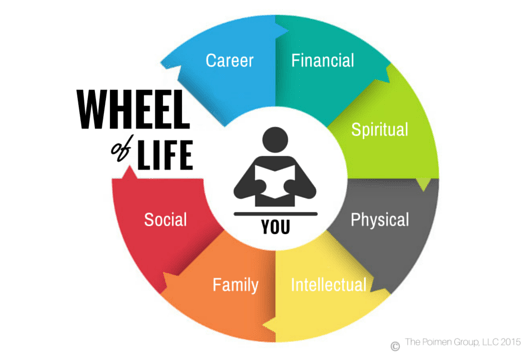 Clients in the US and Canada have a credit card on file that is billed at the time of each session. International clients may use alternative methods of payment including PayPal or Wise.
Clients in the US and Canada have a credit card on file that is billed at the time of each session. International clients may use alternative methods of payment including PayPal or Wise.
For more information on therapeutic coaching, please reach out to Jane using the form on her Contact page or book an intake session here.
Disclaimer
Therapeutic Coaching sits in the space between therapy and coaching and is designed for clients who – at most – would meet criteria for a minor diagnosis such as an adjustment disorder. The model is not to be used as a substitute for traditional therapy, and is not designed to treat serious clinical diagnoses. Sessions do not qualify for health insurance or any healthcare payment plans including FSA, HSA or Healthcare dollar arrangements.
Make Payment
Client Portal
Contact
Gestalt-group life: rabota_psy — LiveJournal
Author Nina Rubshtein, gestalt therapist, MIGIP trainer, head of the training center at MIGIP, author of books on popular psychology.
I really love the group and the group process, because, in my opinion, group therapy is one of the most effective methods of working with interpersonal and intrapersonal difficulties. In this article, I want to “paint a picture” of group life as I see it, using both my client experience and experience in leading groups and the theoretical knowledge gained from training and the sources listed below. It seems to me that this text can provide good support for novice presenters.
The value and effectiveness of the group.
What is it?
For me, a therapy group is every time a micro-life, a three-hour model of the whole life: each participant lives these three hours in the same way as he lives his life, with the same features, obstacles, ways of communication, ways to achieve goals and satisfy needs. That is why the group for me is a treasure in which everyone can find their treasure - the answer to the questions "how I live" and "how I do not live, but absent.
 "
" The group performs for each participant a number of functions that provide an opportunity for the participant to increase awareness of their own processes, actions, interruptions, interactions with other people. Irvin Yalom in the book “Group Psychotherapy. Theory and Practice” you will find a list of therapeutic aspects (healing factors) of group work:
1. Inspiring hope
2. Universality
3. Communication of information
4. Altruism
5. Corrective analysis of the influence of the parental family
6. Development of socializing techniques
7. Imitative behavior
8. Interpersonal influence
9. Group cohesion
10. Catharsis
11. Existential factors
in my opinion, it is necessary to rely primarily on the novice presenter
Experimental space of the group. In it, those processes on which it is difficult or unsafe for the client to experiment in life, there is an opportunity to study in a group, to discover new ways to act. (Yalom's experimental space is described in the sections "Development of socializing techniques", "Imitation behavior", "Interpersonal influence")
(Yalom's experimental space is described in the sections "Development of socializing techniques", "Imitation behavior", "Interpersonal influence")
Psychological safety. The atmosphere of valuelessness, the psychological safety rules of the group help the participant to actualize their own system of values and develop their own beliefs about themselves and the world, as opposed to introjective ones.
Support in difficult experiences. The group plays the role of a family, where each member can receive support even when there is no one to support him in his life at the moment. This support is provided by other participants not only in the form of empathy and approval, but also in the form of specific help and information.
Information. The range of questions that arise from the group members helps them to request from the facilitator a wide variety of information, the function of which is to relieve anxiety caused by a lack of knowledge.
Recognition. At a certain stage of the group's work, participants learn to recognize the equality of themselves and others in human capabilities and manifestations, realize their right to be unique and accepted by others. Here, too, the group fulfills a role not once fulfilled by the family.
Here, too, the group fulfills a role not once fulfilled by the family.
Getting rid of the illusion "I am alone in my grief." The group provides great support to the participant when he finds out that what he is experiencing is familiar to other people, which means that it is normal, experienced. By getting rid of this illusion, the client better appropriates his "normality" and gets rid of the need to use his difficulties or features as a screen for responsibility: "everything in my life is so bad because I am a black crow." Thus, the client learns to regulate his degree of responsibility for what is happening in his life.
Widest range of values and points of view. The difference in the worldviews of the participants helps a particular client to expand the vision of his life situation and gain a more flexible system of values, mobility in choosing his attitude to what is happening in his life.
Group myths.
Both leaders and group members have different prejudices about what a group is, how it should be, what is possible and what is not, what is bad and what is good.
 The collection of myths of clients and hosts that I have collected helps me a lot in my work: when I suspect that a client has a myth about the group, and I have about him, I can be more attentive to what he does, what meanings he attaches to what is happening than if I thought that he was open to what was happening and perceives the group directly. N. Dolgopolov considers in detail the work with this phenomenon in the article "The use of "experimental group norms" in gestalt work with the" protective field" of the group" (collection "Russian Gestalt, issue 6").
The collection of myths of clients and hosts that I have collected helps me a lot in my work: when I suspect that a client has a myth about the group, and I have about him, I can be more attentive to what he does, what meanings he attaches to what is happening than if I thought that he was open to what was happening and perceives the group directly. N. Dolgopolov considers in detail the work with this phenomenon in the article "The use of "experimental group norms" in gestalt work with the" protective field" of the group" (collection "Russian Gestalt, issue 6"). Here are the popular myths of clients:
- in a group you need to spread everything about yourself, even if you don't want to;
- in a group it is necessary to respect each other, even if the other person is extremely unpleasant to me;
- a group is a place where people are forced to make friends and learn "friendly rituals" with them;
- a group is a place where you need to talk about your life situations, and the host (or other participants) will answer the questions that I will ask;
- everything in the group is determined by the leader - how, where and why the group will move;
- group rules are invented by coaches and exist in order to make it convenient for them to work;
- if you do not obey the coach, then he can kick him out of the group;
- in a group one must be aware;
- the presenter will tell you how to live correctly;
- and so on.
These myths are, of course, organized by the transfer that the participants impose on the coach. Variations of this transfer are manifold, and hence the diversity of myths.
There are also countertransference myths of the coaches themselves:
- participants want to be aware of their behavior patterns;
- members are interested in group security;
- I have to take care of the participants and resolve conflicts, no matter what it costs me;
- if you first say the rules, then the work will immediately go like clockwork;
- participants should reveal themselves as much as possible in the group;
- the group atmosphere should be as safe as possible;
- if there is a conflict in the group, then I am to blame;
- if the participants leave the group, then I am to blame;
- and so on.
In reality, group life is good because in it, just like in real life, there is no way to predict events, distribute responsibility once and for all and avoid difficulties.
 Everything is like in life.
Everything is like in life.
Bulk formats.
Gestalt groups are different. Victoria Dubinskaya writes: “A group is more than two. (...) A group turns into an “organism” when people are united by one idea and are ready to work together.”
Here are the most common group work structures.
The usual Gestalt group has a number of traditions: the first circle, the "hot" client chair and the sessions in the circle, the final circle. The tasks of the facilitator in such a group are: to lead the first round, to make sessions, to collect feedback, to lead the final round.
A dynamic gestalt group is different in that there is no “hot chair”, group life takes place in the format that the participants set. The tasks of the leader in such a group are to observe exactly how the participants build relationships, how they spend and organize group time, and present their observations to clients.
Both the first and second options that I described can be structured or unstructured.
 A structured group is when the therapist says, "Now we're doing this." In an unstructured group, the therapist does not give tasks to the participants, the participants themselves decide what to do.
A structured group is when the therapist says, "Now we're doing this." In an unstructured group, the therapist does not give tasks to the participants, the participants themselves decide what to do. This or that style of leading a group depends, in my opinion, on two main things:
- on the personality and preferences of the leader;
- from the tasks that the leader sets for himself at this stage of the group's development.
Within the group, N. Dolgopolov identifies the following settings (formats of group work): “common circle”, “group mirror” (group feedback for one of the participants), “in the world” (the therapist works with a personal theme of one of the participants), “ session in the center" (therapist and client work on his personal topic in the center of the circle), "central circle with an aquarium", "group dialogue" (dividing the group into two teams), "microgroups" (twos and threes), "diffuse circle" , “forum-microgroups” (article “Sketches for maintaining gestalt groups”).

Stages in the life of a group.
There is a well-known staging of the group process in a gestalt group: the fusion stage, the introjective stage, the projective stage, the stage of cooperation. N. Dogopolov names the following stages:
1. The stage of merging and positive projections
2. The stage of destruction of positive projections
3. The stage of violent interactions
4. The stage of acceptance by the group of its group reality.
Irvin Yalom identifies the following stages:
1. Acquaintance, indecision, search for meaning
2. Conflict, dominance, resistance
3. Development of cohesion.
Knowing this dynamic helps a lot to keep track of where we are right now, since certain group phenomena correspond to each stage. I consider the group from the point of view of developing the ability of clients for intimacy, dialogue, sincerity, reflection, the ability to “unstick” their transference hallucinations from the real events taking place in the group, developing support and self-support skills.
 From this point of view, I will give my staging of the group process, which I rely on in group work.
From this point of view, I will give my staging of the group process, which I rely on in group work. 1. Acquaintance. The purpose of this stage is to help clients get to know each other better, navigate each other's core values and take their place in the group. Usually the group ignores the introduction stage, turning it into a formal procedure. I focus in the group during this period on how the participants feel when they find themselves in this environment, how they are affected by recognition, acquaintance. To do this, I focus the group's attention on the following questions:
- do you feel closer? more familiar than before? if yes, what helped you? if not, what is stopping you or what are you lacking?
- what changes for you when you learn some information about each other?
- what kind of information about others do you yourself want to know and why?
- what kind of information do you want to report about yourself and why?
- what you do not want to report about yourself and in connection with what?
- what do you not want to hear from others and in connection with what?
- What difficulties do you face when asking others or talking about yourself?
- what stops you from learning something about others directly or from saying something about yourself directly?
I consider this stage to be very important, because it is in it, in my opinion, that there are a lot of opportunities for group work. Many times I have come across the fact that both clients and trainers often consider this stage as something preparatory, however, in my opinion, it already contains all the information, all the resources for therapy.
Many times I have come across the fact that both clients and trainers often consider this stage as something preparatory, however, in my opinion, it already contains all the information, all the resources for therapy.
Answering the above questions, participants realize:
- how they usually ignore the environment and, due to this, are poorly oriented in choosing an object to satisfy their needs;
- what introjective messages form their illegibility;
- which projections organize their perception;
- what specific irrelevant ways do they have to start and establish relationships;
- what traditional role they usually occupy in the team and why, why.
2. Recognition of deep differences in worldview, self-expression, values, perception of the environment and oneself.
The discovery of these differences becomes possible only after people have really managed to get to know each other, meet each other and establish an atmosphere of trust in the group.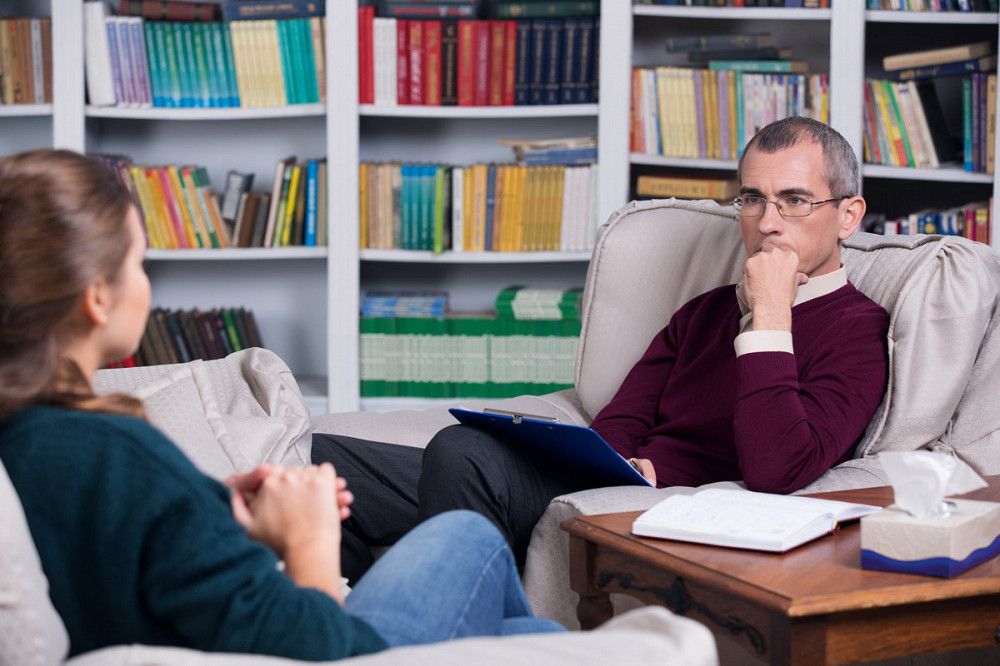 At this stage of group work, the uniqueness of each evokes a variety of feelings in everyone and, thus, it is possible to discover by giving what meanings and meanings to the individual characteristics of the participants, they form their reaction to this uniqueness. Work continues with projections and introjects, transfers and countertransferences of participants to each other and to the leaders.
At this stage of group work, the uniqueness of each evokes a variety of feelings in everyone and, thus, it is possible to discover by giving what meanings and meanings to the individual characteristics of the participants, they form their reaction to this uniqueness. Work continues with projections and introjects, transfers and countertransferences of participants to each other and to the leaders.
3. Acceptance of differences. This stage for me is perhaps the most touching and valuable, because it is in it that the participants begin to respect their own and others' uniqueness, learn to confront not with the personality of the other, but with his behavior patterns, expand their own worldview about their own and other people's characteristics, rights , opportunities.
These stages, of course, do not happen by themselves, but due to the facilitation of the trainer who observes, discovers, reinforces and presents the group processes to the group.
Group processes.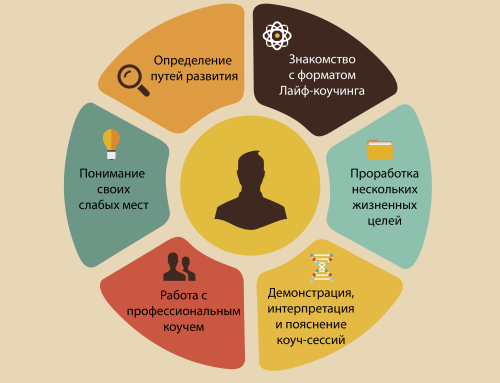
Group processes I mean convex, outstanding group phenomena, events arising under the influence of external events or internal processes of participants. Among them, predictable processes and unpredictable processes can be distinguished. The predictable events that trigger group processes are:
- group start
- new members entering the group
- leaving the group of members
- long absence of some members
- unexpected cancellation or rescheduling of classes
- conflicts between participants
- deep self-disclosure of participants with shocking intimate details
- changes in the lives of participants
- changes in the behavior of participants in the group
- last month of classes in the group
Unpredictable events: sudden departure of the group by one of the participants, any hysterical presentation of the participants, sudden external events (someone suddenly entered the group from outsiders, for example, or other force majeure circumstances), unexpected discovery by the participants of mutual acquaintances, violation of the confidentiality rule by one of the participants , which led to the consequences that became known to the group.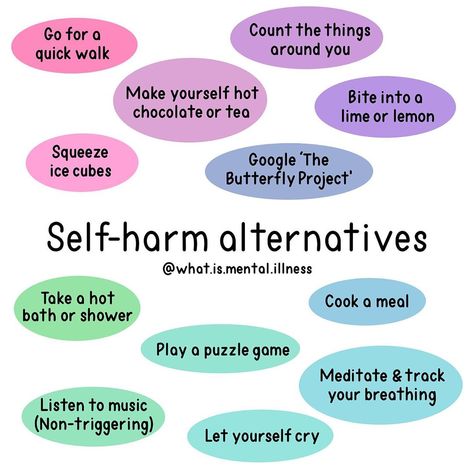
All events (both predictable and unpredictable) are normal and natural, but they should not be underestimated, since any event changes group life even if the participants “did not show” that they were somehow hurt by it. Therefore, I consider it important to focus in the group on the discussion of the event. In my opinion, if the event was not discussed openly enough, there is a concealment of "secret" reactions and, as a result, an increase in the distance between the participants. By "secret reactions" here I mean the meaning that Bob Resnick voiced: "Privacy is the private events of my life, and secrecy is hiding something that is between us."
Closed and open groups.
A closed group is formed once, on one day (or within three or four lessons) and is closed for new members to enter. The advantage of such a group is the constant increase in the popularity of the participants for each other, the stability and security of group processes. Such an atmosphere contributes to a deeper self-disclosure of the participants.

An open group is formed within 1-4 lessons and after this period, if someone leaves the group, a new member can be accepted into the group to replace the departed one. This group also has a number of advantages:
- group processes are close to real relationships in life, since the participants change periodically;
- the group regularly goes through all stages of its development, in a spiral, helping the participants to discover how their way of getting to know each other and accepting differences from the last time has changed, which supports the participants in changing;
- participants are better adapted to the emergence of new people, and can apply these skills in life;
- participants take more conscious responsibility for the degree of their self-disclosure and are well trained to regulate it, consciously choosing real reasons for reducing or increasing self-disclosure, or choosing ways and tactics of self-disclosure
- the constant updating of the group helps the group system to develop, absorbing new ways to see the world with the arrival of new members.

Group leader positions.
I distinguish positions of the leader according to the degree of involvement in group interaction:
1. Parental position. The coach makes sure that each participant has enough attention in the group, is a mediator in the conflicts of the participants, an interpreter between the participants in moments of mutual misunderstanding.
2. Equal position. The trainer, along with the participants, shares his observations, awareness and experience.
3. Position of the Observer. The trainer is minimally involved in the group process, lives in the group as if “outside the circle”, joining only in case of emergency or in order to share the group figure he has seen.
I find that all three positions are useful for a group leader at various stages of group development.
The parental position is appropriate at the beginning of the group and when new members appear, as providing psychological safety to a greater extent than other positions.
 This position differs in that the facilitator takes more power (and therefore responsibility) for the group process and manages the group process.
This position differs in that the facilitator takes more power (and therefore responsibility) for the group process and manages the group process. The Equal position is most appropriate when participants present complex intimate information about themselves or experiences that can cause ambiguous (I would say, sharply opposite) reactions of other participants, when they commit acts that can cause condemnation of other participants. Such a position helps participants with lower self-esteem to rely on the experience of the facilitator, as well as helps to remove transference expectations from the facilitator, is the most supportive.
The position of the Observer perfectly helps to transfer responsibility for what is happening in the group to the participants themselves, encourages participants to independence and bold choices, is most appropriate at the third stage - the stage of accepting differences (cooperation) or in a very mature, experienced group.
In the book “Techniques of Family Therapy” by Ch.
 Fishman and S. Minukhin, I came across very interesting roles of a family therapist, which can also be used by a group leader: close proximity, intermediate position, detached position.
Fishman and S. Minukhin, I came across very interesting roles of a family therapist, which can also be used by a group leader: close proximity, intermediate position, detached position.
Difficulties of the group leader.
Each facilitator experiences a number of difficulties in leading a group that cannot be avoided by professionalism, knowledge or experience, these difficulties are the difficulties of making decisions about what
- which position is better to take now;
- how to maintain a balance of frustration and support;
- what events should the group pay attention to first of all;
- how to maintain your loyalty and neutral position if the participants are engaged in "tug of war" - pulling the coach to their side or sharply conflict with each other;
- what intervention to make at what moment;
- how much, at what moment and in what form to present to the participants their emotions, their experience and their points of view.
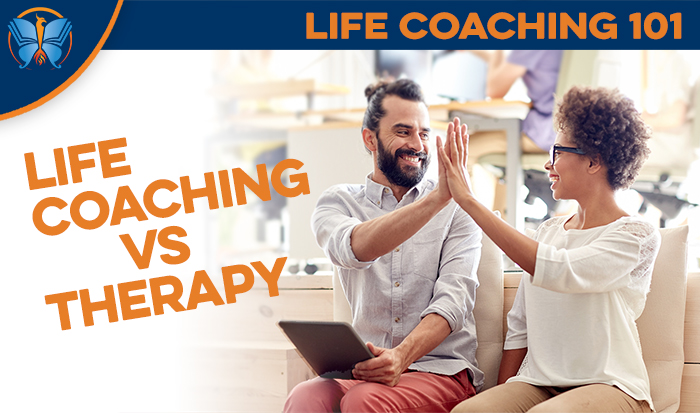
My way of dealing with these difficulties is to share them with the participants, my partner, and ask myself these questions. The answer at any moment can be different, but the most accessible for the coach at that moment.
Literature:
1. Irvin Yalom. Group psychotherapy. Theory and practice. // Publishing House of the Institute of Psychotherapy "April Press", M., 2006
2. Andrey Gronsky. Classical Gestalt Group.// Russian Gestalt (Issue 3) / Ed. N.B. Dolgopolova, R.P. Efimkina. - Novosibirsk: Scientific and Practical Center of Psychology of NSU, 2001
3. Irvin Yalom. Schopenhauer as a medicine.// Eksmo Publishing House, Moscow, 2007
4. Nifont Dolgopolov. The use of "experimental group norms" in gestalt work with the "protective field" of groups//Russian Gestalt (issue 6), M., 2005
5. Victoria Dubinskaya. Gestaltist work with a group. // Russian Gestalt (issue 6), M., 2005
6. Nifont Dolgopolov. Sketches for the management of Gestalt groups//Russian Gestalt (issue 6), M.
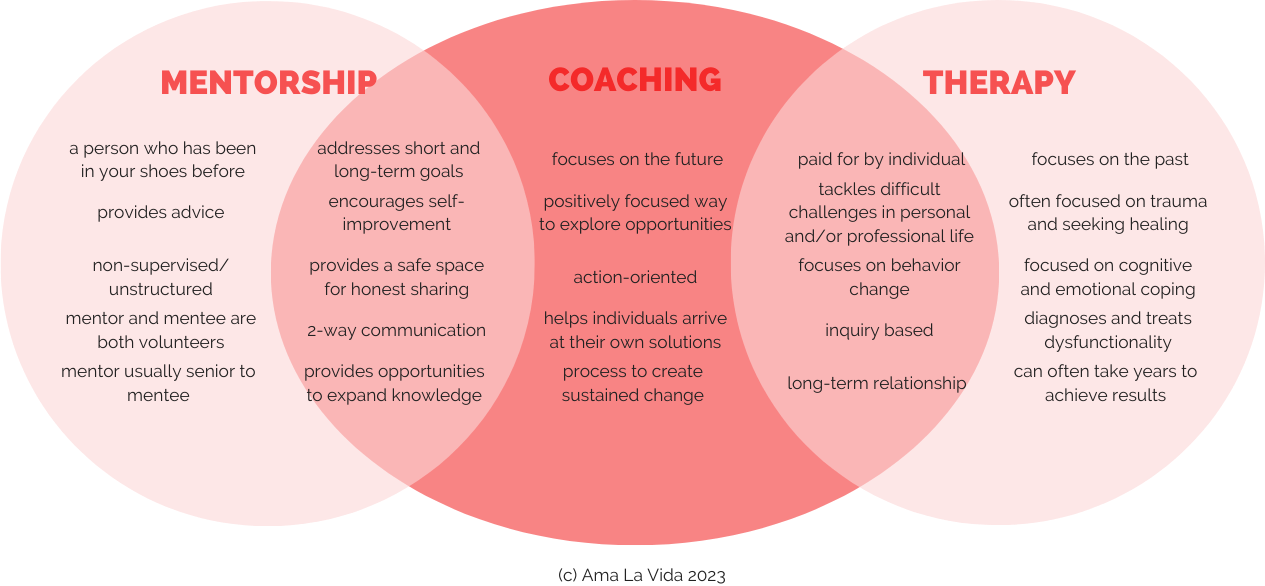 , 2005
, 2005 7. Charles Fishman, Salvador Minukhin "Techniques of family therapy"//Publishing House "Class", M., 2006
MIPOPP - Specialists
Leading trainer-supervisor of MIPOPP, teacher of psychology, author and presenter of additional professional education programs in process-oriented psychology (international certification and diploma programs ISPWR) and psychotherapy of mental trauma in different cities of Russia and neighboring countries, certified process-oriented therapist (f.m. IAPOP, ISPWR International Trainer-Supervisor), Certified Trauma Therapist, Certified Psychosomatic Disorders Specialist, OPPL International Trainer, APOPP Trainer-Supervisor.
Psychologist, teacher of psychology, head of psychological education of MIPOPP, mentor and lead trainer-supervisor of MIPOPP, head of the international diploma training program for trainers ISPWR / MIPOPP, author and host of additional professional education programs in process-oriented psychology and psychotherapy of mental trauma, certified process - Oriented Therapist, Certified Trauma Therapist, Consultant Psychotraumatologist (DIPT, SIPT), Body-Oriented Therapist, Certified Psychosomatic Disorders Specialist, International Trainer for OPPL, Fellow of the European Association of Body-Oriented Psychotherapists (f. m.EABP) and the International Association of Process-Oriented Psychotherapists psychology (f.m.IAPOP).
m.EABP) and the International Association of Process-Oriented Psychotherapists psychology (f.m.IAPOP).
Lead trainer-supervisor of MIPOPP, candidate of biological sciences, psychologist, certified process therapist (member of IAPOP, international trainer of ISPWR), author and host of a professional development program in process-oriented psychology (ISPWR international certification program) in various cities of Russia and neighboring countries , Coach, UNESCO/IOEC Certified Specialist in...
Lead trainer-supervisor, psychotherapist, psychologist, certified process therapist, trauma therapist.
Psychologist, body-oriented psychotherapist, trauma therapist. Chartered somatic therapist in the IBMT approach. Author and presenter of the program "Five Steps of Development" for adults on the conscious living of the experience of birth and early development up to four years (MIPPOP). Leading creative laboratories on somatics and movement.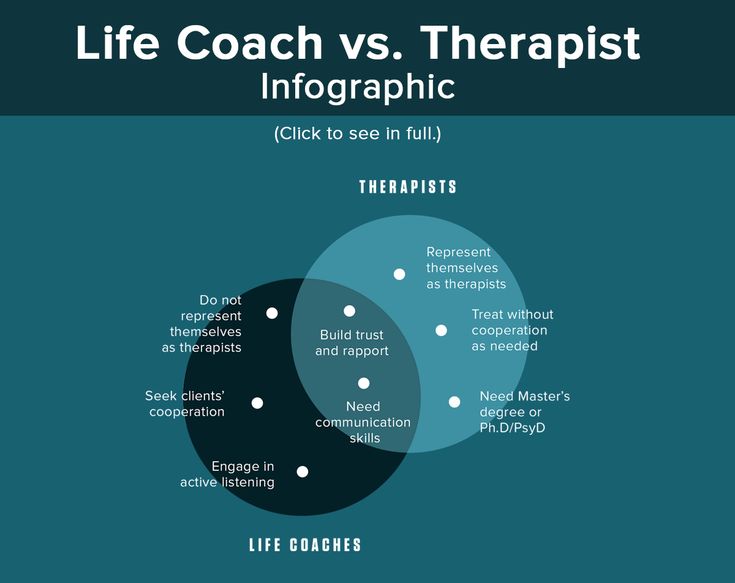 In 2004-2014 she worked in the field of HR consulting, corporate training, development and personnel assessment in the oil and gas industry. Experience in therapeutic practice since 2015.
In 2004-2014 she worked in the field of HR consulting, corporate training, development and personnel assessment in the oil and gas industry. Experience in therapeutic practice since 2015.
Lead trainer-supervisor of IIPOPP, psychologist, master of clinical psychology, certified process-oriented therapist (IAPOP), member of IAPOP, full member of the PPL. Certified gestalt-therapist, integral-somatic therapist ("Working with stress and trauma" Los-Angeles - Moscow). Director of the Obninsk psychological center "New Look".
Certified Process Oriented Worker, Psychotherapist Practitioner, Trauma Therapist, Business Therapist IIPOPP | Institute of Business Processes, innovation analyst, start-up specialist. Extensive experience in working with venture companies and Funds to support innovative and socially significant projects. Experience in working with the projects of the Development Institutes of the Innovation Promotion Fund, the Ministry of Education and Science, the Ministry of Industry and Trade, the FIEP RUSNANO, Skolkovo projects of Event 1. 2, the NTI roadmap and innovative start-ups, with foreign educational and scientific organizations.
2, the NTI roadmap and innovative start-ups, with foreign educational and scientific organizations.
Psychologist, process-oriented therapist, trauma therapist; Assistant at the International Program in Process-Oriented Psychology; specialist in intercultural communication, linguist, translator; yoga instructor; leader and organizer of psychological groups and seminars...
Practical psychologist, process-oriented therapist, expressive arts therapy, Jungian fairy tale therapist. Experience of practical work - since 2007.
Practical psychologist, counseling psychologist, research psychologist, teacher, full member of the PPL, member of the APOPP.
Psychologist, clinical psychologist, certified systemic and process-oriented psychotherapist, psychotraumatologist, teacher of psychology. Participant of the second phase of the diploma program of the Russian-Swiss School of Process Work. Author and host of a rehabilitation program for co-dependents (Moscow Scientific and Practical Center for Narcology). Author and presenter of the training program "Peculiarities of working with addicts and their families" (Institute of Integrative Family Therapy). Developer and presenter of the program "Educational and therapeutic groups" in a process-oriented approach (MIPOPP). Author and presenter of the program "Psychology of Age Crises" (MIPOPP). Experience in therapeutic practice since 2003. Teaching experience since 2009of the year.
Author and presenter of the training program "Peculiarities of working with addicts and their families" (Institute of Integrative Family Therapy). Developer and presenter of the program "Educational and therapeutic groups" in a process-oriented approach (MIPOPP). Author and presenter of the program "Psychology of Age Crises" (MIPOPP). Experience in therapeutic practice since 2003. Teaching experience since 2009of the year.
Psychologist, teacher of psychology. Family, individual and group therapist. Leading the author's weekly psychotherapy group. Leading groups and lectures for parents and children.
Somatic therapist, psychologist-psychotraumatologist, EMDR-therapist. Leading retreats on the conscious re-experiencing of birth. Author of a program on effortless movement based on Feldenkrais somatics, work with patterns of early development, bodynamics.
Psychologist, teacher of psychology. Certified specialist in systemic family counseling and family psychotherapy. Certified Specialist in Systemic Family and Structural Constellations. Certified trauma psychotherapist. Consultant - psychotraumatologist. Process-Oriented Certified Professional. Teacher, supervisor, recommended therapist of the advanced training program "Psychodynamic Somatic Therapy of Psychic Trauma" (ANO DPO MIPOPP). Author and presenter of the program "Psychotherapy of loss and trauma of loss", seminars on topics of loss and trauma of loss in advanced training programs. Lecturer, supervisor, organizer of the support service for families experiencing loss and grief at the Institute of Integrative Family Therapy (ANO "IIST", Moscow, 2009-2019)
Certified Specialist in Systemic Family and Structural Constellations. Certified trauma psychotherapist. Consultant - psychotraumatologist. Process-Oriented Certified Professional. Teacher, supervisor, recommended therapist of the advanced training program "Psychodynamic Somatic Therapy of Psychic Trauma" (ANO DPO MIPOPP). Author and presenter of the program "Psychotherapy of loss and trauma of loss", seminars on topics of loss and trauma of loss in advanced training programs. Lecturer, supervisor, organizer of the support service for families experiencing loss and grief at the Institute of Integrative Family Therapy (ANO "IIST", Moscow, 2009-2019)
Certified Process Oriented Therapist.
Psychologist, author of trainings, full member of the OPPL. Certified process-oriented therapist of the “Working with the Shadow” method, author and presenter of the training “Together. Long and happily...
Practical psychologist, student of the Diploma Program of the International School of Process Work (ISPWR, IAPOP), process-oriented therapist, student of psychodynamic somatic therapy of trauma, one of the founders and coordinator of the IIPOPP volunteer project to provide psychological assistance to those in need.
Psychologist, child psychologist, trauma specialist, Jungian sand therapy specialist.
Psychologist, certified specialist in process-oriented psychology, trauma therapy, body-oriented and systemic family therapy and systemic constellations, certified psychotraumatologist consultant (G. Fischer Institute, Germany). Experience of practical work - since 1992.
Psychologist, certified family systemic, process-oriented therapist, trauma therapist, teacher of psychology, assistant, recommended therapist, leader of educational and educational-therapeutic groups, supervisor of the program Psychodynamic Somatic Therapy of Trauma, student of the Diploma Program ISPWR procersswork Russia 2022.
Psychologist, certified specialist in process-oriented psychology, trauma therapy, perinatal and reproductive psychology, systemic family therapy, systemic-family and structural constellations, certified consultant psychotraumatologist (G. Fischer Institute, Germany). Experience in psychotherapeutic practice since 1996, teaching experience since 2003.
Fischer Institute, Germany). Experience in psychotherapeutic practice since 1996, teaching experience since 2003.
Consultant Psychologist, Specialist in Psychosomatic Disorders, Certified Process-Oriented Psychologist. Experience in the specialty: since 2011.
Practicing psychologist, certified process oriented therapist (ISPWR 2016-2017), facilitator of group processes and world work, student of the ISPT program (Somatic Psychodynamic Therapy of Psychic Trauma). Experience of practical work - since 2015.
Psychologist, Ph.D., Senior Researcher at the International Laboratory for Positive Psychology of Personality and Motivation and Senior Lecturer in the Department of Psychology, National Research University Higher School of Economics. Process Oriented Therapist (IAPOP Member), Reproductive Psychologist (RPP). Experience in the specialty: since 2001.
Psychologist, certified process psychologist, psychotherapist, family psychologist, vocational guidance specialist, certified psychologist according to the Symboldramm method, systemic family therapist, leader of psychological and educational-therapeutic groups, regular practical experience since 2006.


